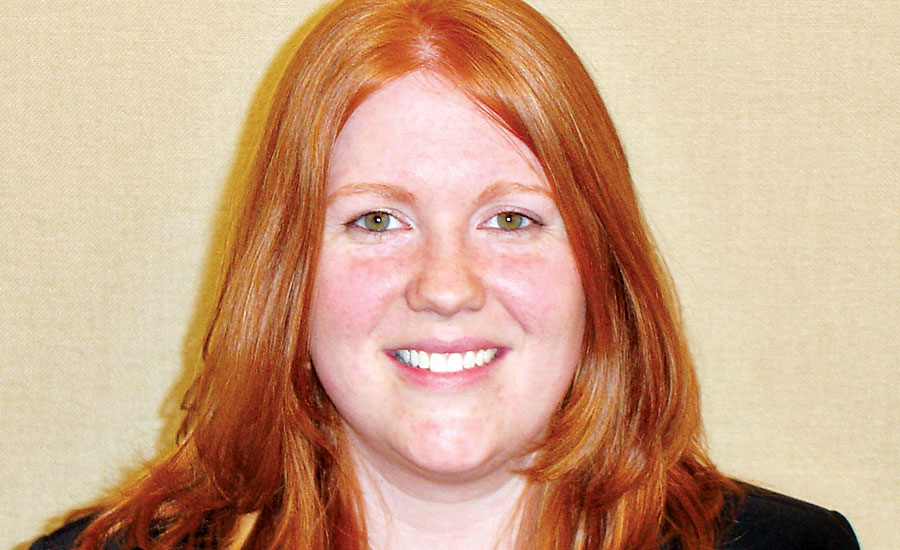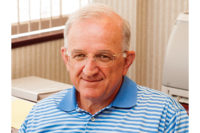Kari Anne Donovan, P.E., saw an opportunity and went for it. After her time with Ambler, Pa.-based Precis Engineering, she saw a bigger chance to work cooperatively with building owners, design team and operations members and was the lead in launching Precis Commissioning.
pmerecently spoke with Donovan about the launch of Precis Commissioning, the company receiving certification from the Women’s Business Enterprise Naitonal Council and how commissioning can assist plumbing and mechanical engineers in their design.
pme:How did the opportunity to begin Precis Commissioning develop and what made it the right time to open the company?
Kari Anne Donovan: We saw increased demand for commissioning in the marketplace and significant opportunity to focus and expand our commissioning services to a broader range of markets, from current Good Manufacturing Practice (cGMP) environments to commercial buildings.
pme:What are — if there are any — added pressures for you as the founder and majority owner? Are there any because you are a female business owner? If so, how have you dealt with those pressures in the first couple months?
KAD: I am fortunate to have a team of business partners who also serve as mentors. We all are very passionate about the quality and service level we provide. I am energized by my new leadership role and the ability to work directly with owners, facility managers and design teams to customize the commissioning services we offer.
pme:What did it mean to you and the company to receive the Women’s Business Enterprise National Council certification? How do you see that helping the company now and in the future?
KAD: The WBENC certification was achieved after a comprehensive evaluation process to vet our status as a woman-owned business. We hope prospective clients see the credential as a value-add. As a woman-owned firm, Precis Commissioning offers diverse perspective, which always benefits the design and operations of a facility.
pme:How can Precis Commissioning help plumbing and mechanical engineers working in the commercial marketplace develop their projects and designs?
KAD: Engaging our commissioning agents to perform design reviews can have long-term benefits. Agents bring both field experience and practical knowledge. For example, we can look at a design and identify issues that might lead to maintenance challenges and operational issues in the future such as difficult maintenance access and inefficient control logic. Identifying future problems costs less to resolve on paper than to correct in the field.
pme:How have the testing aspects of building construction evolved over the years? What do you believe might be the next step in the process?
KAD: Especially in certain industries, the need to prove a design works as intended has become more important due both to our increasingly litigious environment and a general desire for improved checks and balances. Most owners are looking to optimize building performance or achieve energy savings.
Consequently, building envelope testing has become more sought after. Clients are utilizing building information modeling software not only for design and construction activities but also for documenting the facility users, rentable square footage and facility assets. Continued advances in technology and building performance optimization are likely for the near future.
pme:How did your time with Precis Engineering mold you for this new venture?
KAD: While I was with Precis Engineering, I learned how to work with clients and how to provide a high level of service. I also designed the systems my team now commissions. It was a strong foundation not only about the work we do, but how we do it. We place the utmost value on relationships; it’s not about a single commissioning assignment, but how we can serve each client for the long term.
pme:How do you develop the team you work with at Precis Commissioning? What are you looking for in a colleague?
KAD: I try to identify subject-matter experts who also have a good understanding of building systems in general. We are building a team of specialists so collectively we have the experience and expertise to address all potential situations. In all the colleagues — both Precis Commissioning employees and teammates — I look for people who share our business approach that service and client relationships are extremely important. Collectively, our knowledge and service help identify solutions rather than problems.
pme:How has the push for green technologies in buildings shaped the way Precis Commissioning does business?
KAD: Building owners and facilities managers are looking to operate more efficiently. LEED has become the most popular certification opportunity, but we also work with owners who prioritize Green Globes and Energy Star. We see the push for green technologies being more about a conscious effort to reduce operational expenses and impact the productivity and comfort of building occupants. We think about the nuance of energy efficiency in terms of building systems and real people.
For example, properly designed HVAC and lighting systems can increase employee productivity and reduce overall absenteeism. As these potential benefits are difficult to quantify, simple payback of construction cost to operational cost savings are more conservative when it comes to identifying the benefit to the client’s profitability, which is often the driving force behind implementing more sustainable features into a facility.
pme:What nonresidential construction sectors do you see business opportunities for plumbing engineers in 2015?
KAD: Opportunities exist to incorporate more water reclamation systems and activities. Techniques and systems to reuse or recycle water or to mitigate water use seem to be extremely popular and are continually expanding.
pme:If you had one piece of advice to give to plumbing engineers, what would it be?
KAD: Think about how plumbing engineering fits into the context of other building systems. Consider how the systems you design will impact building performance and occupant comfort. At Precis Commissioning, we try to balance the two when we approach a project. We emphasize relationships over individual projects, which is something someone at any level of his or her career can do. If you build strong, supportive and collaborative relationships, you’ll be viewed as a valuable teammate for the long term.
This article was originally titled “Review session” in the May 2015 print edition of pme.



